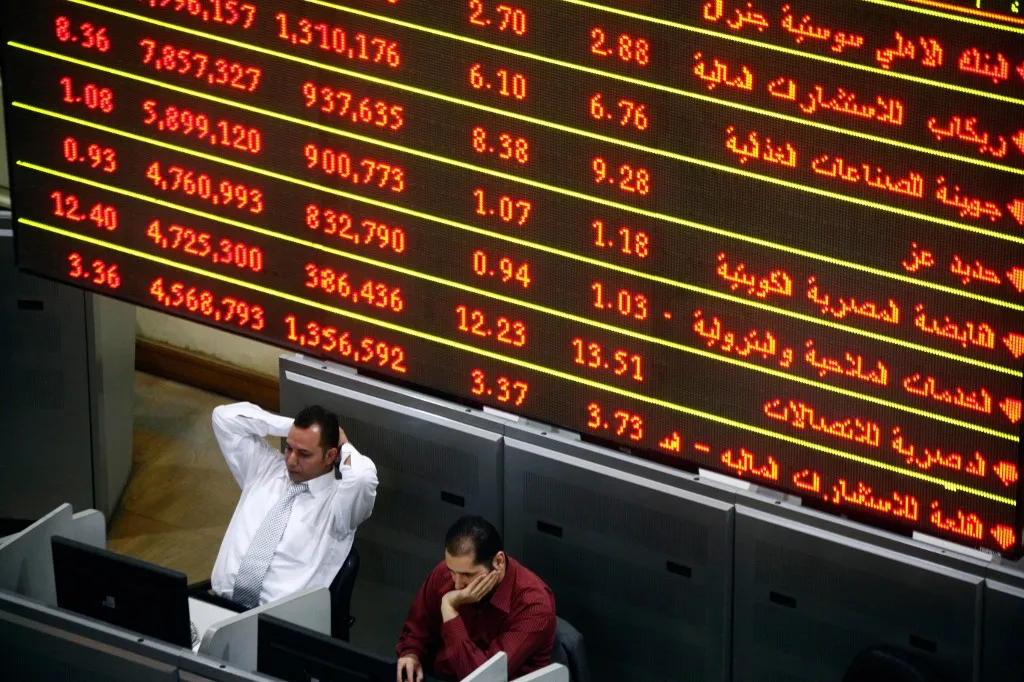The Egyptian Exchange (EGX) 30 Index has hit record highs as investors in the North African country look to hedge themselves against rapidly rising inflation and currency devaluations. At time of writing, the benchmark exchange was trading near 18,850 – having strengthened by over 7% in August alone. In local currency terms, the index has now risen by over 90% since the start of the year, with the increase in dollar terms standing at around 2%.
This rise in the value of Egypt’s biggest publicly traded companies comes at a time when Cairo is facing serious economic challenges. Particularly since the onset of the coronavirus pandemic in 2020, the Egyptian government has struggled to service its sovereign debt amidst a severe shortage of foreign exchange. Partly as a result of this, the country was forced to rely on a bailout from the International Monetary Fund (IMF), which was approved in December last year.
The $3bn package was conditional on Egypt instigating wide-ranging reforms to financial markets, monetary policy, and government spending. The most immediately significant consequence was the liberalisation of Egypt’s foreign exchange markets, which saw the Egyptian Pound (EGP) drop to record lows against the dollar. While President Abdel Fattah al-Sisi appeared to rule out a further devaluation of the Egyptian pound in June, many investors believe this to be likely in the coming months.
A much weaker Egyptian pound, at a time when Cairo is running a substantial trade deficit of over $2bn a month, has partly fuelled higher levels of inflation by pushing up the cost of imported essential goods. The North African country has also been seriously affected by President Putin’s decision to blockade Ukrainian grains, with Ukraine having accounted for over 20% of Egypt’s wheat imports over the last five years. This has further pushed up the price of bread and other essentials, with inflation in Egypt now running at 36.5%.
These economic dynamics could help explain why local investors are increasing their exposure to Egyptian stocks. A weakening currency and increasingly high levels of inflation are solidly eroding the value of their cash assets. Especially given the EGX 30 is performing strongly compared to emerging market peers, it makes sense that many investors are seeking to preserve the value of their assets through buying up local stocks. A similar trend has emerged in Nigeria, where a plummeting naira and soaring inflation has seen the Nigerian All Share Index make gains of almost 30% in local currency terms since the start of the year.
While in some ways Egypt’s buoyant stock market reflects local investors’ concerns about currency depreciation and high inflation, increased optimism regarding Egypt’s mid to long-term economic prospects could partly explain the EGX’s run to record highs. The government’s commitment to normalise fiscal policy and liberalise its financial markets, as well as the ongoing financial support being provided by the IMF, has raised hopes that Egypt’s economic performance could be stronger in the months and years ahead.
Want to continue reading? Subscribe today.
You've read all your free articles for this month! Subscribe now to enjoy full access to our content.
Digital Monthly
£8.00 / month
Receive full unlimited access to our articles, opinions, podcasts and more.
Digital Yearly
£70.00 / year
Our best value offer - save £26 and gain access to all of our digital content for an entire year!

 Sign in with Google
Sign in with Google 



